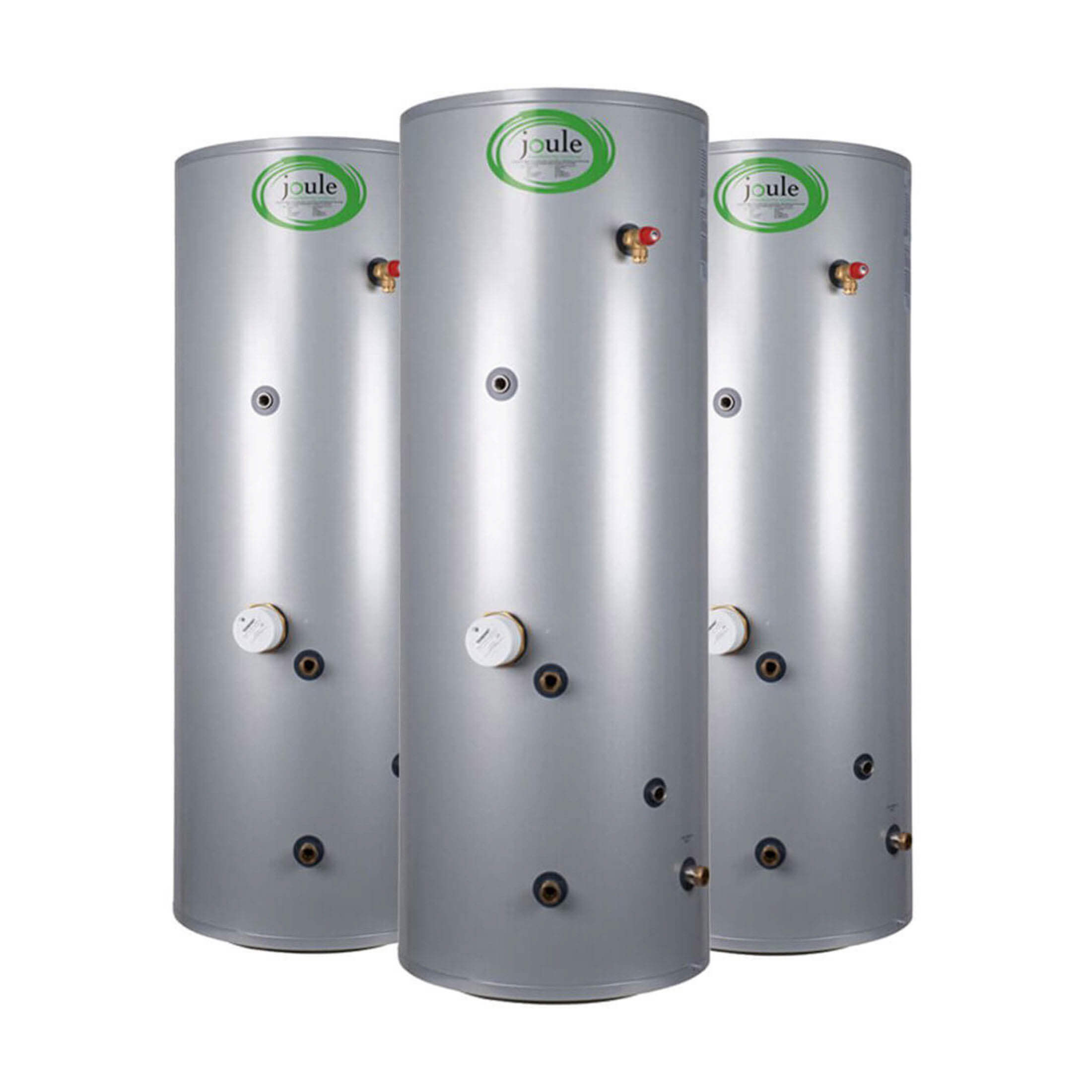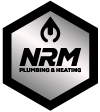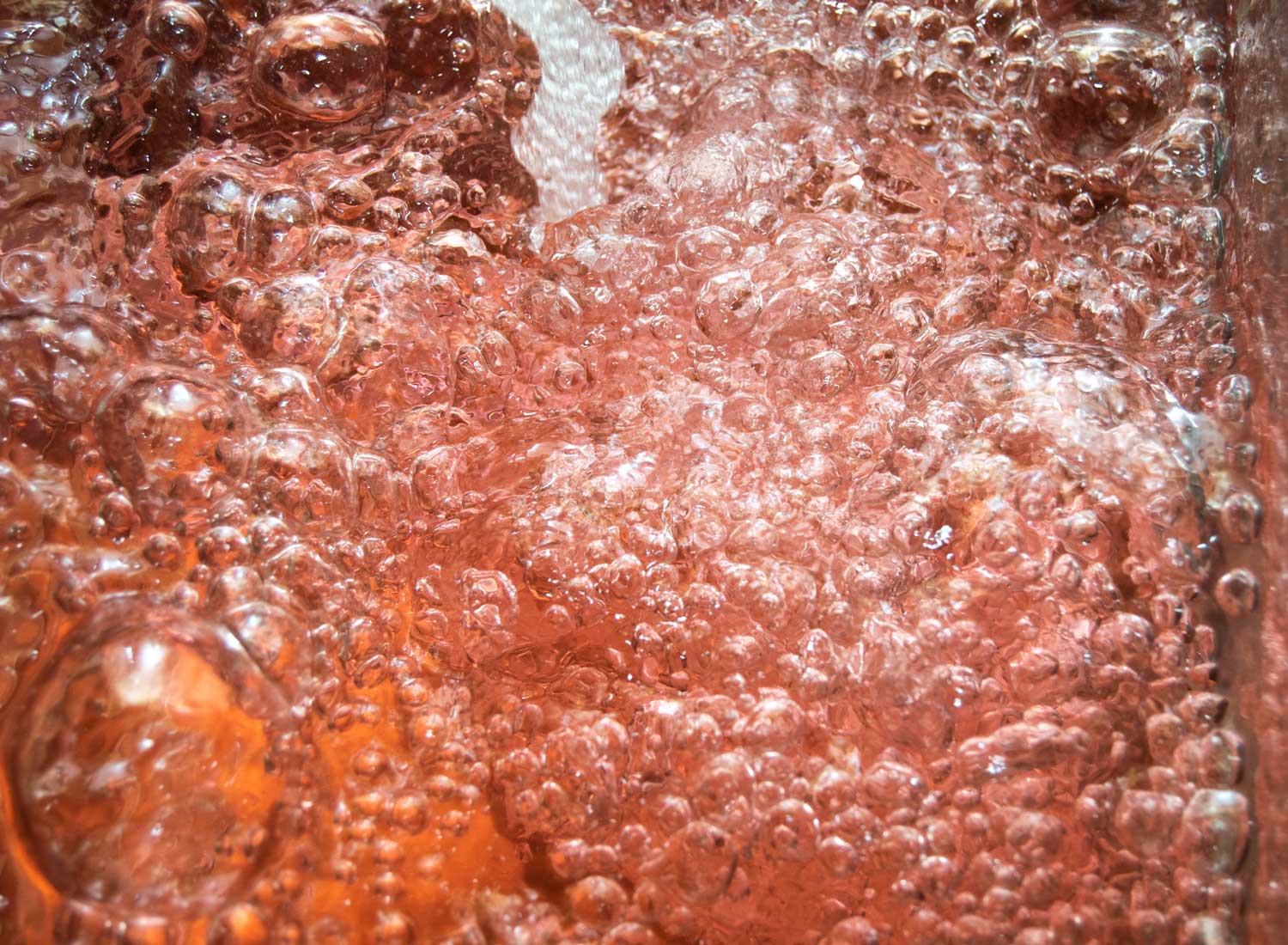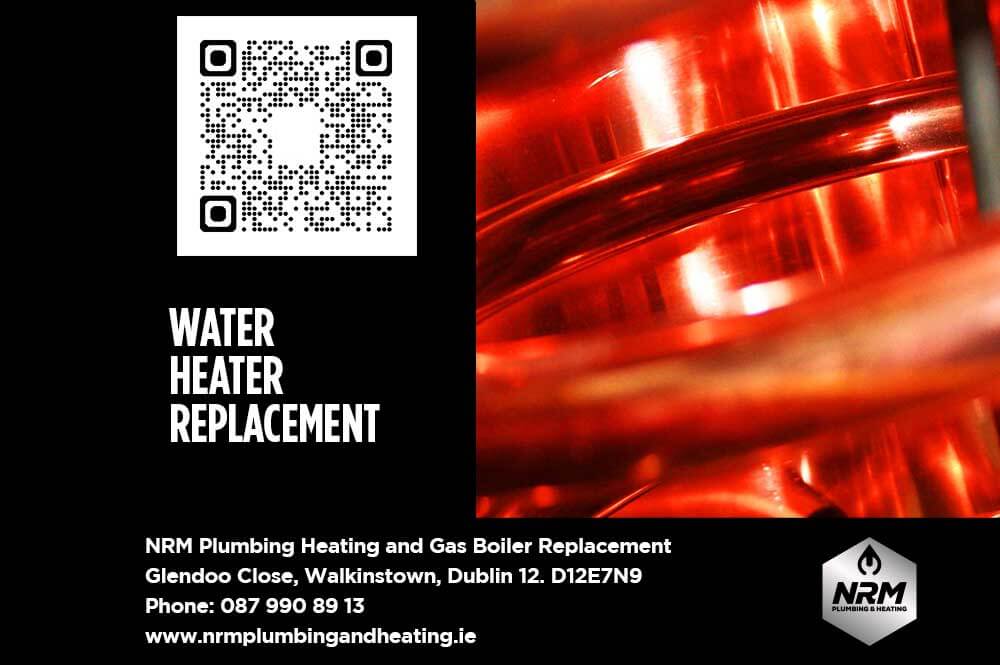Table of Contents
Sign 1: Age of Your Water Heater
Sign 2: Inconsistent Water Temperature
Sign 3: Unusual Noises and Rumbling
Sign 4: Visible Leaks and Corrosion
Sign 5: Declining Water Quality
Sign 6: Increased Energy Consumption
Sign 7: Frequent Repairs
Types of Water Heaters to Consider
Choosing the Right Replacement
As a team of Dublin heating engineers with many years of experience, we’ve witnessed numerous water heater emergencies throughout Dublin’s residential areas. A cold winter morning dawns while you yearn for a hot shower, yet you receive an icy shock that makes your body shiver. Not the start to the day you’d hoped for, right? The water heater operates behind the scenes in our homes until it suddenly develops an issue. Homeowners tend to ignore their water heaters until they discover they have no hot water. The following blog article explains when your old water heater needs replacement to avoid becoming a safety hazard to yourself.
Sign 1: Age of Your Water Heater
Let’s talk longevity. Most water heaters have a typical lifespan that depends on their type:
| Water Heater Type | Average Lifespan |
|---|---|
| Traditional Tank Heaters | 8-12 years |
| Tankless Water Heaters | 15-20 years |
| Heat Pump Water Heaters | 10-15 years |
You should begin monitoring your water heater when it reaches or exceeds these marks. An aging water heater functions like an old car because it may continue operating but its chances of breaking down increase.
Sign 2: Inconsistent Water Temperature
Remember when your hot water used to be consistently warm and comforting? Sudden temperature swings between scalding hot and freezing cold water indicate that your immersion heater may be showing its white flag. The heating element problems usually cause these temperature fluctuations. The temperature fluctuations are more than just annoying because they indicate your water heater is failing to perform its basic function.
Sign 3: Unusual Noises and Rumbling
Types of Unusual Sounds
Popping or Crackling: The presence of sediment at the bottom of your tank usually causes this warning sign. The presence of substantial sediment accumulation produces this sound, which reduces your heater’s efficiency. A high-pitched whining sound usually points to problems with heating elements or pressure valves.
Sediment accumulation happens naturally during the normal operation of water heaters. The minerals present in your water supply will eventually precipitate at the tank bottom to form a sediment layer, which makes your water heater work more difficult. The process of heating water becomes inefficient and potentially damaging when you try to do so through a concrete-like layer.
The decision to disregard these unusual noises goes beyond maintaining silence. The risks include:
- Reduced heating efficiency
- Increased energy consumption
- Potential tank damage
- Shortened water heater lifespan
Sign 4: Visible Leaks and Corrosion
Spotting early signs of water heater damage can save you from a potential disaster. Keep an eye out for:
- Moisture around the base of the water heater
- Rust-coloured water
- Visible corrosion on the tank exterior
- Water pooling around the unit
The water heater damage risks reach far beyond the heater’s own structure. Unchecked leaks can:
- Damage flooring
- Cause structural issues
- Promote mould growth
- Destroy surrounding equipment or stored items
You should replace your water heater completely when you notice these specific warning signs.
- Multiple leak points
- Significant rust or corrosion
- Leaks from the tank body (not just connections)
- Persistent moisture despite repairs
Sign 5: Declining Water Quality
Your water should be crystal clear, not a murky mystery brew. Signs of water quality issues include:
- Discoloured water
- Metallic or unusual taste
- Visible particles or sediment
- Unusual odours
Your water heater condition directly affects the quality of your water supply. The condition of an aging or deteriorating tank will lead to:
- Rust and sediment will enter your water supply
- Compromising water purity
- Affects the taste of drinking water
The impact on health and appliance efficiency goes beyond mere inconvenience. Poor water quality can:
- Causes skin and hair irritation
- Damage household appliances
- Reduces the efficiency of heating systems
- Potentially lead to long-term health concerns
 Sign 6: Increased Energy Consumption
Sign 6: Increased Energy Consumption
An aging water heater is like a tired athlete – it works harder but achieves less. Here’s how an older unit affects energy consumption:
- Reduced heating efficiency
- Longer heating times
- Increased electricity or gas usage
- Higher utility bills
Modern water heaters are technological marvels compared to their older counterparts. Energy efficiency improvements include:
- Better insulation
- More efficient heating elements
- Smart temperature control
- Improved heat retention
Sign 7: Frequent Repairs
If your NRM local Dublin plumber knows your phone number instantly when it pops up on our phone, it might be time to consider a replacement. Signs that repairs are becoming unsustainable include:
- Repeated callouts within short periods
- Increasing repair complexity
- Parts becoming harder to source
- Repair costs approaching replacement value
Benefits of investing in a new water heater:
- Improved energy efficiency
- Modern safety features
- Better performance
- Manufacturer’s warranty
- Peace of mind
Types of Water Heaters to Consider
Not all water heaters are created equal. Here’s a comprehensive overview:
Gas Water Heaters
- Pros: Quick heating, lower running costs
- Cons: Requires gas line, potential ventilation needs
Electric Water Heaters
- Pros: Easy installation, lower upfront cost
- Cons: Higher electricity running costs
Heat Pump Water Heaters
- Pros: Extremely energy-efficient, lower operating costs
- Cons: Higher initial investment, works best in moderate climates
Tankless Water Heaters
- Pros: On-demand heating, space-saving design
- Cons: Limited simultaneous hot water output
Choosing the Right Replacement
Selecting a water heater isn’t a one-size-fits-all decision. Consider these crucial factors:
- Household Size: Determines hot water capacity needs
- Hot Water Needs: Peak usage times and volume
- Energy Efficiency: Long-term cost considerations
- Available Space: Installation constraints
Why Professional Consultation is Crucial
Selecting and installing a water heater isn’t as simple as picking the most attractive model off the shelf. A qualified professional brings expertise that goes far beyond basic product selection.
Correct Sizing: More Than Just Capacity
- Household Demand Assessment: Professionals calculate precise hot water requirements based on:
- Number of occupants
- Simultaneous hot water usage patterns
- Peak hour demand
- Consequences of Incorrect Sizing:
- Undersized units lead to insufficient hot water
- Oversized units waste energy and increase operating costs
Appropriate Energy Source Selection
- Infrastructure Evaluation: Professionals assess:
- Existing gas or electrical connections
- Home’s electrical capacity
- Potential for renewable energy integration
- Long-Term Cost Analysis:
- Comparing initial investment vs. ongoing running costs
- Potential energy efficiency incentives
- Future-proofing your hot water solution
Proper Installation: Beyond DIY
- Technical Expertise:
- Correct positioning and ventilation
- Proper pipe connections
- Electrical or gas line modifications
- Safety Considerations:
- Preventing potential gas leaks
- Ensuring electrical safety
- Proper pressure relief valve installation
Compliance with Local Regulations
- Navigating Building Codes:
- Understanding local installation requirements
- Obtaining necessary permits
- Ensuring insurance compliance
- Technical Specifics:
- Adhering to safety standards
- Meeting energy efficiency regulations
- Proper documentation and certification
A skilled professional handles water heater installation by performing tasks beyond basic appliance setup. The solution they provide addresses all your home requirements through careful planning. The professional’s expertise enables both financial savings and safety protection and long-term peace of mind for you.
Your immersion water heater functions as a fundamental system which provides essential comfort to your home. The seven essential signs enable you to anticipate hot water system management which stops both expensive equipment failures and inconvenient hot water interruptions.
System failure should not be your trigger to take action. You should consider replacement options with a reliable local plumber if your system displays multiple signs of failure.
Stay warm and stay prepared during the next cold spell with NRM Hot Water Cylinder Replacement Dublin.
Ever wondered about getting an Electric combi boiler installation?…..Check out our latest blog post for details.





Leave A Comment